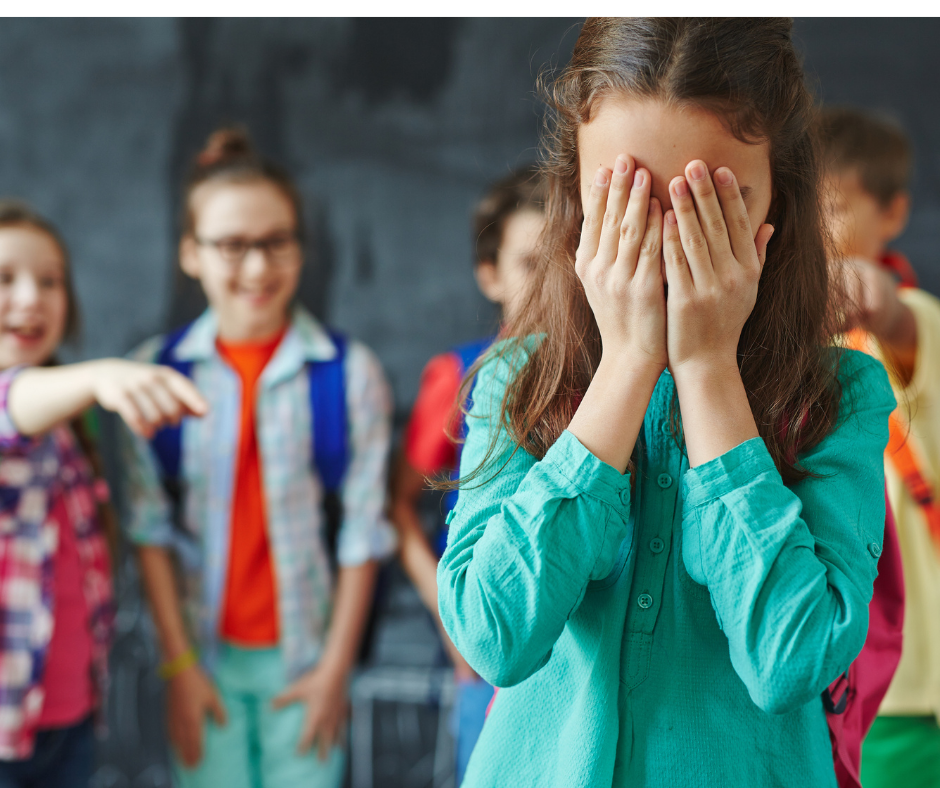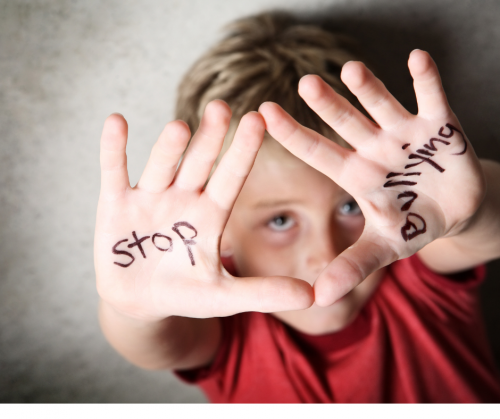 No parent ever wants to find out their child is being bullied. We take on their sadness, desperation and embarrassment. Then, we get angry. We want someone to fix it fast. How can bullying still be a problem in our society? Is there no solution?
No parent ever wants to find out their child is being bullied. We take on their sadness, desperation and embarrassment. Then, we get angry. We want someone to fix it fast. How can bullying still be a problem in our society? Is there no solution?
Well, it’s complicated.
First, let’s clarify the difference between curiosity, meanness and bullying. Curiosity may sometimes come out sounding mean when kids are young. They do not always use their filter and may not be up to speed on all of the world’s social graces. For example, “Why do you talk funny like that?” or “You have to go to a tutor?!” The subtle nuances of pragmatic language may have been snubbed and the words come out sounding rude or malicious.
Meanness is qualified as a purposefully hurtful incident that happens maybe once or twice. The offender may criticize intelligence, clothing, appearances, or anything else that will hurt another child. Those on the receiving end of meanness (e.g., “You’re ugly/fat/stupid!” or “It looks like you got that sweater out of the trash!”) can feel deeply hurt by such offenses and adult intervention may be warranted. However, as any parent or teacher knows, kids can impulsively say mean words and regret it later. When designing intervention plans, distinguishing meanness from bullying is highly relevant.
Bullying is “unwanted aggressive behavior among school-aged children that involves a real or perceived power imbalance.”1. Behaviors tend to be repeated over time. Bullying includes attacking someone physically or verbally, making threats, spreading rumors and even intentionally excluding someone from a group. Kids who experience bullying (or have been a bully) can have lasting negative effects through adulthood, including depression, anxiety, poor sleep patterns, health complaints and decreased academic achievement. To date, approximately 20% of students ages 12-18 experience bullying nationwide, 1 so this is a HUGE problem that requires our attention.
We know that when adults respond quickly and consistently to bullying behavior, they send a clear message that it is not acceptable. Calm and deliberate intervention adults will be more effective and empowering than emotional over-reactions.
 How can parents help?
How can parents help?
- Teach the difference between curiosity, meanness and bullying. Knowing the distinction will help kids identify a situation they can attempt to handle on their own vs. tell an adult. Have a discussion about when it is “time to tell.” Ability to respond to a mean comment or challenging situation will be different for each child and will change with age.
- Prepare kids ahead of time to respond to questions and comments about subjects for which they are sensitive. For example, “I know you don’t like when other kids talk about your weight/clothes/complexion. It’s hurtful and they shouldn’t do it, but sometimes you may have to handle a difficult situation. Let’s plan what you could say to someone who asks a question or makes a comment so you will feel ready.” Try a little role playing. It will be easier for kids to respond in the moment when emotions are running high if they have practiced with a safe person during a calm moment.
- Know your rights. When true bullying occurs, what is the school policy? In most districts, all bullying episodes must be reported to the principal and intervention must occur.
- Discuss hotspots for bullying and make a plan. Hallways, playgrounds and buses are common areas for bullying to occur because they are less structured with little supervision. Encourage your child to find ways to avoid potential bully situations. For example, stand on opposite sides of the playground, linger near an adult, stay with a group, inform a teacher ahead of time that particular students make you nervous, or change seats on the bus.
- Be a good reporter. When bullying occurs, emotions will run high. Coach your child to notice his/her surroundings during or after the moment. When it comes time to report the incident, details will make a difference in how the teacher/principal will handle the intervention. Be ready to calmly and clearly report:
- Where the incident occurred
- When it happened
- What specifically happened
- Who participated
- Who witnessed it
For example: “We were on the bus on the way home after school. Jason yanked on my backpack, unzipped it, and took all my books and papers out. He threw them on the floor. He said I was “such a loser” and laughed. Two boys, Aiden and Kyle, laughed but did not do anything. Jennifer and Kim watched it happen. This is the third time Jason was mean to me on the bus. The first two times he called me names.”
I am a big fan of teaching kids the “JERK PRINCIPLE.” The basic concept is this: one out of ten people is a jerk. If they aren’t being a jerk to you, then they will be a jerk to someone else. If they are not being a jerk about your appearance, then they will be a jerk about how you walk, talk or breathe. You are a kid and it’s not your job to fix them. The good news is that nine out of ten people are kind. Find those people. Surround yourself with the people who make you feel good about yourself.Stay away from the jerks as best possible. (Please feel free to substitute “jerk” with a word of your choice.)




















Good information, Tricia – we have had to face this head on!